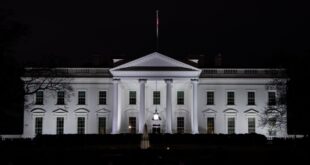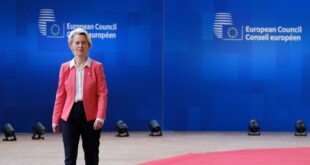By Shehab Al-Makahleh
To vote for independence or not, that is the question in Kurdistan and Scotland. Both cases are loaded with huge geopolitical implications.
In Iraqi Kurdistan a non-binding referendum was held on the 25th of September, in which the Kurds were asked to decide whether to secede into an independent state. Expectedly – overwhelming majority of voters chose independence based on their ethnic group’s centuries long quest for statehood. Scotland, on the other hand is expected to vote for independence in 2018-2019. The concept of self-determination supports the rights of the Scots and the Kurds to decide on their future, yet the question is: How can the Kurds decide voluntarily and with conviction to remain a part of Iraq now after the referendum reawakened their independency aspirations? And would the Scots in the next referendum decide to secede from Britain to form their own state and what are the implications of both these scenarios?
Both Scotland and Kurdistan have similarities and differences in their self-determination rights, whereby the Kurdish secession, according to Iraqi constitution, would be illegal – despite their vote. Moreover, such a move would carry risks of great upheaval in the region and beyond.
Iraqi security expert and strategist Ahmad al-Sharifi stressed the repercussions of Kurdish referendum on the region and the world. “If this happens, there will be no Iraq or a unified Syria,” he said. “If the referendum is held, the region will see the first real steps of the new Middle East scenario.” Al Sharifi added: “The current scene shows that the Iraqi government has adopted the option of preventive diplomacy, which depends on dialogue to find a solution to an existing dispute, and this dialogue has local, regional and international dimensions, and this has already happened.”
He stressed that the decisions taken by the Iraqi government based on the mandate of the parliament and the Federal Court are binding. Thus, if the Iraqi Kurdistan does not abide by what the Iraqi parliament asked, this will be deemed against the country’s Constitution and the law. We do not bet on the regional positions of neighboring countries, which may change their positions as a result of their political and economic interests.”
According to Jahad Tuz, the researcher at the Statistical, Economic and Social Research and Training Centre for Islamic Countries (SESRIC), Turkey’s basic problem lies not in the Iraqi Kurds’ approach to the referendum, but with the projects of dividing the area planned by external forces by employing them. Tuz points out that Turkey rejects the referendum because the secession of the territory is part of a plan that will, if it is separated geographically from its Arab neighbors, give the “terrorist forces” a field that allows it to move effectively and will open the way for the division of other countries. Including Turkey.
Mohammad Al Husseini, a Kurd activist, said that it is expected that the leadership of the region will proceed with the referendum because Iraq, Turkey, Iran and the international community have failed to reach an agreement on a number of issues related to the Kurds’ future.
“There are facts that cannot be neglected when talking about the referendum on the independence of Kurdistan. The first is that the Kurds are people belonging to a unified race and speak one language and they have a culture and historical heritage and are located on a geographically connected area. However, they were divided by Sykes-Picot agreement into four countries: Iraq, Iran, Syria and Turkey. This means that the Kurds have to decide their destiny to have a state like any other race that lives on a geographically connected spot. As we know, the right to self-determination is a fundamental right of peoples as stipulated upon in the Charter of the United Nations and international human rights declarations,” said Husseini.
Iranian political analyst, Imad Abshnas, said that the independence of Iraqi Kurdistan may be a threat to Turkey and Iran. He added: “The presence of a Kurdish state bordering Iran means a watershed that may lead to further conflicts and insecurity between the main players in the region. This fear comes from Israeli interference in the referenda as Tel Aviv supports the secession of Kurdistan.” Abshnas pointed out that Tehran will not allow such states to be bordering Iran, causing political instability.
The referendum vote was decidedly pro-independence, however the most important fact is being willfully neglected, in particular by the powers that would like to see the Kurdish-buffer state between Iran and the Arabs ― that Kurds in Iraq already have a great amount of autonomy and that the referendum is non-binding. The narrative that is being pushed that the referendum results would lead to de facto independence is dangerously misleading and risks creating further destabilisation across all four countries in which Kurds form a significant minority: Iraq, Iran, Syria and Turkey.
Since the referendum results were made public, Turkey has intensified its fight against Kurdish PKK fighters, and has conducted joint military exercises with the Iraqi army to coordinate action to contain Kurds should they move on to unilaterally declare independence in the coming months.
On the other hand, in Iran, Kurdish minority has also started raising questions about independence, and although in Iran Kurds have had a history of good relations with the government―unlike in Iraq and Turkey―it is possible that the trend might change in the coming months. There are fears that the events might lead to a great region-wide war that might last years. Yet with the current state of affairs, it is likely the Kurds to be on the losing end, should the war break out, as no world power has voiced support for Kurdish referendum, save for Israel. Israel’s support for Kurdish state was decried by many as hypocritical, as current Israeli government keeps Palestinians from achieving their own right to state, despite international efforts to that end.
Regarding Scottish referendum on independence expected in 2018 or 2019, Gary Paterson, a Scottish political activist, said: “Twenty years on since Scotland voted for devolution, younger generations have become hungry for Scottish independence.” He added that he has never taken things for granted. However, Paterson pointed out that his “generation knows it to be nothing other than a political reality – the space where Scotland’s national voice is articulated through popular will and progressive format. We must be ready to fight to take the hopes.”
The events likely to follow eventual Scottish independence can be foreseen through the example of just concluded October 1 referendum on independence in the Spanish region of Catalonia, which the Spanish government deemed illegal and void.
The voting itself was marred by violent clashes between police and the Catalonians, the scale of which was met with shock and indignation around the world, and the seizure of voting posts by Spanish police.
However, the referendum went on regardless, resulting with the Catalonian regional government’s issuance of the declaration of independence on October 10, proclaiming the establishment of “the Catalan Republic as an independent and sovereign, legal, democratic and social state.” Yet, in a surprising move following the signing of the declaration of independence, the head of the Catalonian government decided to suspend the process of declaring the factual independence in a bid to launch talks with the Spanish government.
According to Catalan government around 90% ―of the 43% of eligible voters that took part in referendum―supported the independence yet the Spanish government deems the vote illegal. On Wednesday Spanish Prime Minister has given 8-day ultimatum to the Catalan government to drop the bid for independence, failing which would suspend Catalonia’s political autonomy and would put it under direct rule of Madrid.
Both Kurds and the Catalonians base their claims for independence on the concept of the right to self-determination as stipulated in the UN Charter, their historical aspirations for statehood, alongside with the poor treatment by their respective central governments. The Iraqi and Spanish governments, on the other hand, call on the illegality of the votes as being contrary to respective state Constitutions and the existing autonomy they both enjoy.
In both cases, going forward with the declaration of independent states of Catalonia and Iraqi Kurdistan would trigger chain of events that would shatter the existing order in both Europe and the Middle East. Throughout recent history, peaceful changing of the state borders was an extremely rare occurrence. To be sure, Iraqi Kurdistan referendum would inevitably lead to a new war within Iraq which would quickly spill over the borders to Turkey and Iran and translate into a war with no end in sight.
Voting for independence was the relatively easy part of the dilemma – but translating that vote into the actual independence, without violent conflict at this juncture seems impossible. Catalonian clashes showed the world something nearly unimaginable ― that even in the democratic EU states the government would use force to quell actions it deems illegal according to state laws.
The question for the Kurds and the Catalans may have been ‘to vote or not to vote’, but for the rest of us, other questions worth pondering could be why the same acts to secure the security of the state and its laws are labelled as rightful and in some are not, going so far as to call them ‘regime repression’? Why some people have more right to statehood and some do not and who decides ― the voters, the politicians or the whole set of global political circumstances and vested interests? The questions also arise about the future acts by the plethora of other separatist movements alive around the world and about the reactions of the international community in various cases of separatist demands.
 Geostrategic Media Political Commentary, Analysis, Security, Defense
Geostrategic Media Political Commentary, Analysis, Security, Defense





